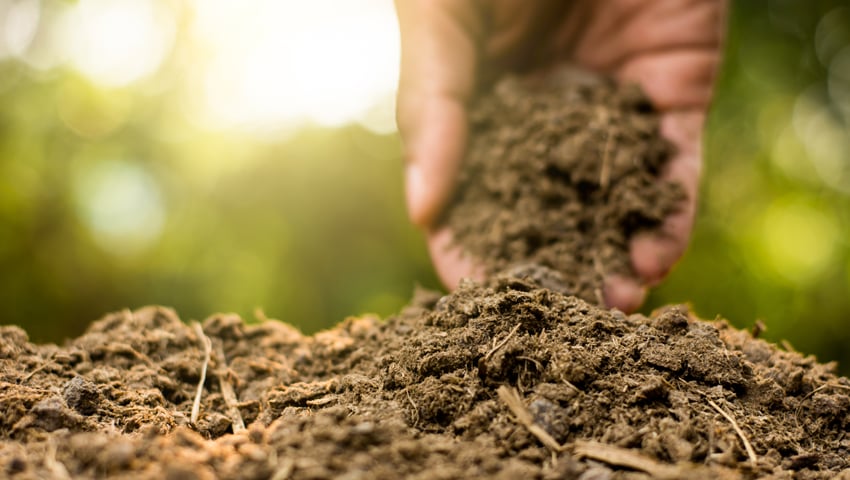The response of Wageningen University & Research soil scientists’ to the proposed EU Soil Health Law has been met with broad support among scientists of WUR and beyond. “It’s good that there is finally a proposal, but we think the law could be even stricter,” says Fenny van Egmond.
On 5 July 2023, the European Commission presented a proposal for a law to improve soil health in Europe. WUR researchers, who had provided input for the law, had long been waiting for this moment. For years they have been advocating legislation to improve soil health, which is important for both natural ecosystems and agriculture. Legislation is badly needed, as an estimated 60-70% of European soils are in poor condition. The biodiversity and fertility of these soils are continuing to decline, despite efforts in some areas to improve soil health.
The WUR soil scientists, who include Rachel Creamer, Liesje Mommer and Fenny van Egmond, are happy that the proposal is now on the table. “It’s good news that more and more people agree something should be done to improve soil health,” says Van Egmond. But there is also criticism from some in the scientific community, who say the proposal needs to be tightened if it is to actually protect soils.
The current bill mainly focuses on standardised and regular data collection in all Member States, so more measurement points and research into indicators of healthy soils. Over the next five years, the European Commission plans to evaluate and tighten the law based on all the data collected and the latest scientific findings.
But Creamer, Mommer and Van Egmond think that this does not go far enough. “We were hoping to see more ambition,” says Van Egmond. Other European and WUR researchers agreed with them, and they decided to send a joint response to Brussels. This autumn, the European Commission will be collecting such feedback for the final legislative proposal, and vote on it next year.
“Our joint response does not go into all the details of the law, but instead offers recommendations supported by us all,” Van Egmond explains. In their Scientific Response Letter, the scientists propose improvements to the way soil health is measured, improved support for soil management and policymaking, and they make a number of suggestions for improving monitoring of soil pollution and its risks. WUR is also sending more detailed feedback to Brussels.
A group of WUR researchers are now collecting signatures inside and outside WUR, and through their network of soil scientists, to strengthen their Scientific Response Letter. This campaign has generated many e-mails and personal messages of support, says Van Egmond. The petition now has dozens of signatures, and that number is rising. “This law is important not only for soil scientists, but also for researchers in the fields of water, agriculture, policy, biodiversity, forestry and land management,” she explains.
In late October, Creamer, Mommer and Van Egmond will submit their Scientific Response Letter to the European Commission on behalf of all signatories. Then it remains to be seen what the final law will look like based on the negotiations and responses received. For the meantime, Van Egmond is mainly hoping for as much support from the scientific community as possible. “Despite our efforts of the past years, we have been unable to restore soil health in Europe. We are doing okay, but there is room for improvement. So I really hope that the law makes it through the European Parliament and that our feedback is taken into account,” she says. “That is the role of science in times of societal transition: to ensure that the latest scientific knowledge is used to make effective laws and regulations, in this case for soil health,” adds Mommer.
